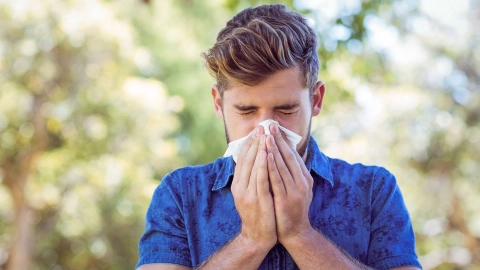ICD-Code J30.2: Other seasonal allergic rhinitis
You have rhinitis. This rhinitis is caused by an allergy.
The inside of the nose is covered with mucous membrane. The mucous membrane swells up during rhinitis. The mucous membrane then produces more fluid. As a result, the nose runs. Furthermore, it can be more difficult to breathe through the nose and to smell.
Your rhinitis is caused by an allergy. With an allergy, the immune system overreacts to certain substances. Such substances may be harmless substances in the environment, drugs or certain chemicals, for example. Your rhinitis only occurs in certain seasons.
Additional indicator
On medical documents, the ICD code is often appended by letters that indicate the diagnostic certainty or the affected side of the body.
- G: Confirmed diagnosis
- V: Tentative diagnosis
- Z: Condition after
- A: Excluded diagnosis
- L: Left
- R: Right
- B: Both sides
Further information
Source
Provided by the non-profit organization “Was hab’ ich?” gemeinnützige GmbH on behalf of the Federal Ministry of Health (BMG).





